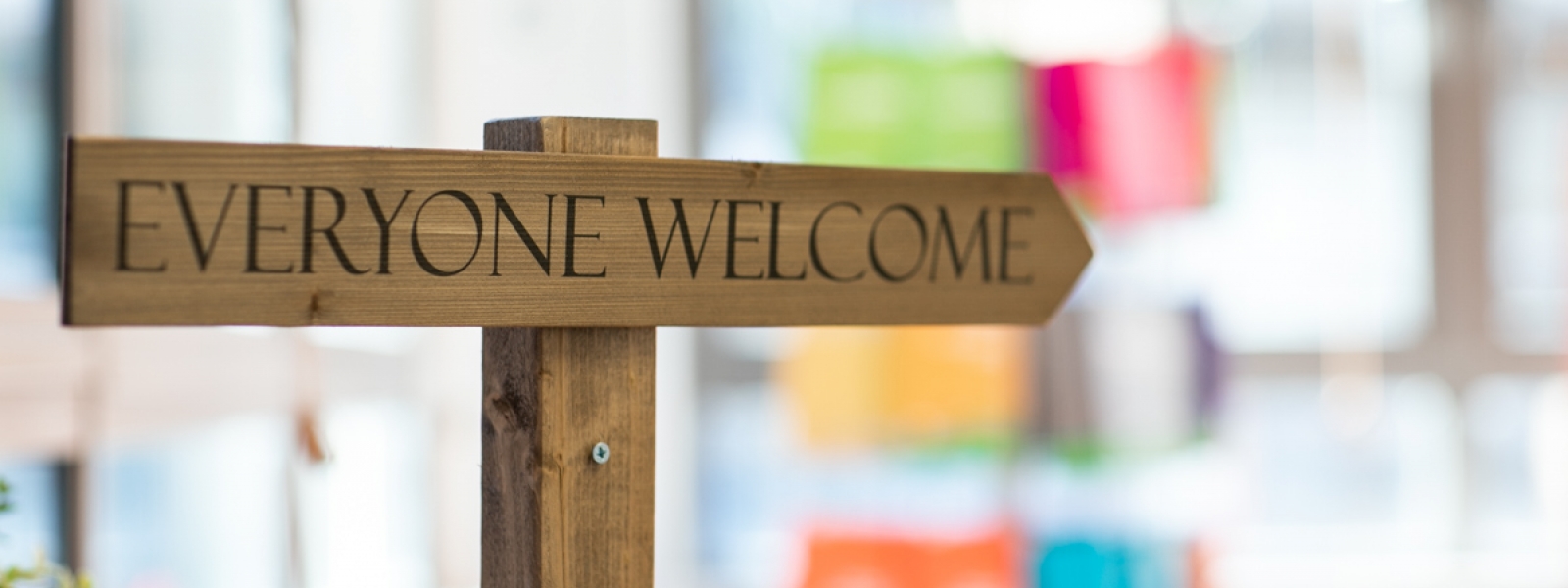Oct
24
2019
Equality Diversity and Inclusion
I remember when I attended my first equality focussed training course – so we are talking the early 00s, and in care in the community role. The session went something like this, “Don’t say this, don’t do that, that’s sexism, that’s racism, and if you do any of these things you might get sacked, ”Yes, it was not the most engaging or supportive session! And on reflection it probably made me more fearful of equality issues so for me, and I suspect a lot of people in the UK, the training was counterproductive.
But since working with the Centre for the past 11 years, and the roles I had before that, the space for more meaningful conversations around Equality, Diversity and Inclusion (EDI) are happening across all sectors. No longer is it good enough to have a policy and a tick-box training session. There’s a bigger emphasis on workshops, positive action, supporting non-traditional candidates and reporting on progress.
So, when I was invited to write this blog I thought I’d share three pearls of EDI wisdom I’ve picked up in my capacity as an EDI Adviser.
1.The goal is not to become bias free
Historically there’s been a really unhelpful emphasis placed on perfectionism. That we need to be neutral and transparent in our approach to work and relationships. But the truth is we will all have unconscious biases. And that’s okay.
They are shaped by the society that we are part of and what the popular narratives are at that time and place.You can also hold biases about a group you are part of – so I myself hold biases around non-binary people even though I am non-binary myself.
This doesn’t mean we are inherently evil, or will intentionally exclude or raise up particular people, it’s just part of the human condition. But yes, it definitely can and does shape our decision making and thought processes. What can you do?
Project Implicit is a great place to start, it’s a social attitude test created by Harvard University and it’s free. You can take a range of tests to start mapping out where your biases lie and then you can take steps to address those. So you might want to slow down decision making, you might want to start following different identities on social media, or most simply give voice to your biases when working within projects, recruitment and planning and think about practical steps that could sense check your thought process.
2.Do you really know what that saying means?
I do not position myself as the expert of all things equality and I think it would be dangerous to think like that! Recognising your own impact, your beliefs, your privilege has to be an ongoing and reflective thing. In which you listen to your colleagues, clients, peers, friends and recognise that you might need to change your practices to be more inclusive.
Googling the origin of phrases you use can be powerful and quite surprising. Crack the whip and you sold me down the river are routed in black oppression and slavery. That’s so lame originates from the idea that disability is a bad thing. Recognising that spirit animal is actually part of indigenous belief and culture and shouldn’t be used to make a jokes about celebrities or fashion.
None of these phrases are usually used to hurt people - they are often phrases we’ve picked up from school, our family, or community. But even though that’s not the intention it can hurt people and make people feel excluded and belittled at work.
The next time you go to use a phrase, say for example, this subject area is a real minefield, think about the root origin of the phrase. Do you need to use such a violent and brutal image to land your point? Could you convey your message using different imagery or language? This process of slowing down and reflecting is such a good habit across all EDI areas as it creates space just to think more meaningfully about your impact.
3.Take things in the spirit they are intended
Finally, and perhaps the most sage* advice I have to offer, is take things in the spirit in which they are intended. Often, we see celebrities, who are actually championing a great cause, get berated and demonised when they stumble over language or cultural competencies.
But I think the thing to focus on is their intent. If they used out-of-date language in a vicious way to hurt someone then yes, definitely do challenge that. If, you actually think this was just a mistake or a lack of awareness come to the feedback from a place of kindness. I would not have the knowledge I do today if it wasn’t for people giving me supportive feedback. And I think that’s really so valuable.
We don’t all start from the same place, my early childhood was spent in very remote Scotland and then the Medway Towns in Kent. When I got to university, as the first person in my family to do, yes I got a big shock that some of the language I was using was problematic. And privilege has a big part to play in EDI – not everyone you know will have ever attended a workshop on this subject. Or have had people who have given them constructive feedback on their language, use of stereotypes, and behaviours.
Kindness and curiosity, I believe are genuinely the best way to support people and meet them where they are in terms of their understanding.
The Centre run's teh following EDI training courses: Equality, diversity and inclusion, Working effectively across cultures, Building Belonging: Understanding Unconcious Bias & Harnessing Emotional Intelligence, Disability and mental health awareness, Gender equality and Working with an intergenerational workforce.


